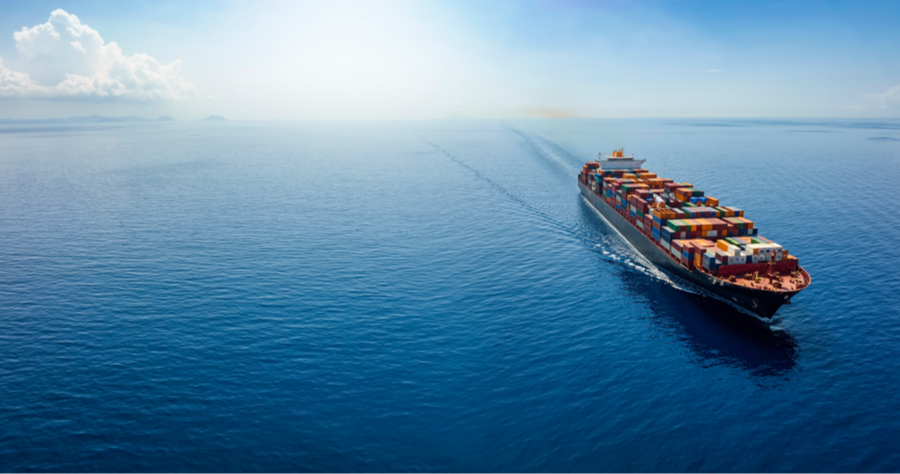
Budget 2024 : The Shipping sector
By Mr. Rajesh Menon, Associate Director & Maritime Expert at Government of India
The Economic Survey of 2024, in its 12th chapter on the Infrastructure of Indian ports, mentions the rapidly expanding capacity of Indian Ports to meet the growing trade. India’s maritime competitiveness has improved globally and ranks in the International Shipments category in the World Bank Logistics Performance Index as 22nd in 2023 from 44th in 2014. Major port capacity has also nearly doubled since 2014. Container turnaround time has dropped by 50 percent between 2014 and 2023-24 with the union capital expenditure towards ports, shipping, and waterways sector has grown by 27 percent between FY23 and FY24.
The budget speech mentioned that ‘’Ownership, leasing and flagging reforms will be implemented to improve the share of the Indian shipping industry and generate more employment’’ and also pointed to the ‘’ tremendous potential for cruise tourism in India and to give a fillip to this employment-generating industry’ a simpler tax regime for foreign shipping companies operating domestic cruises in the country will come up. The minister recommended a presumptive taxation regime for cruise ship operations of non-residents, along with exemption from the income of a foreign company from lease rentals of cruise ships received from a related company that operates vessels in India. There will also be customs duty removal on components and consumables for vessel manufacturing and exemption duties on technical documentation and spare parts for warship construction.
On the positive front, these initiatives bring few opportunities. India is slowly emerging as a cruise destination. The expected passenger volume by 2030 is 20 lakhs from the current 4.7 lakh passengers. Coastal and Inland cruise tourism has already emerged in India and as disposable income increases the passenger volumes will enlarge. The provision for exemptions recommended in the budget will encourage entrepreneurs and tour operators to hire vessels for operations. Application of a presumptive tax which is collected from small businesses without books of accounts with the presumption of profit as a percentage of sales is indeed an incentive for entrepreneurship. Similar removal of custom duty on components and consumables for vessel manufacturing and the statement that ownership, leasing, and flagging matters will be reformed may kickstart the lagging shipbuilding and repair industry sector.
In India as per the Indian Merchant Shipping Act a Vessel needs a license from the Director General of Shipping to float. The Coastal trade can also be made by an Indian-flagged Ship. In the case of leasing ships, like in time charter, there are requirements that unless an Indian vessel is not available for export or import a foreign vessel cannot be leased. Few relaxations were made earlier. This included automatic approval for the acquisition of all categories of ships, except crude tankers and Oversized vessels, by private shipping companies, foreign investment up to 51% for mechanized sailing vessels up to 10,000 dwt, freedom to time charter out Indian ships to foreign shipping companies for employment in international trade and likewise. However, the major relaxation was that in the cabotage law (A restriction of foreign vessels to sail over coastal routes unless permitted) which permitted foreign-flagged ships to transport export-import (EXIM) laden/empty containers meant transshipment on select categories like agriculture, horticulture, fisheries, fertilizer, etc. So, when the budget states that ownership leasing and flagging reforms will be implemented, it hints at additional reforms that enable and strengthen the Indian shipping market
Why are these reforms required for the shipbuilding industry? 14 million gross tonnages of Indian ships contribute to less than 5 % of the vessels in water and 1 % of the total tonnage of ships. When we plan to become Viksit Nation by 2047 and expect to be a $ 32 trillion economy and when 95 % of our trade-in volume terms are through Ships, Indian tonnage ships should multiply. In addition, more than 70% of our vessels are required to be replaced as per mandated global green initiatives as these ships are more than 20 years old. So, we need, more ships manufactured. Unfortunately, our ship manufacturing and repair ecosystem faces challenges related to low demand from the commercial shipping industry, lack of access to low-interest capital, need for improvement in manufacturing technology, and availability of skilled labor. Many shipyards have shut down or are in dismal capacity utilization. In such a scenario, the message in the budget that issues concerning Ownership, leasing, and flagging will be addressed is a matter of hope for the shipbuilding industry as it may spur demand for shipbuilding. However, the matter of capital is still a concern in the background of not having a maritime development fund, which was expected to be announced in the budget.
The Shipbuilding financial assistance policy scheme was launched to offer financial support to Indian shipyards, for shipbuilding contracts signed between 1 April 2016 and 31 March 2026. As per the economic survey, 39 shipyards have registered, and 18 shipyards have utilized the benefits. Similarly, The Recycling of Ships Act, 2019 aims to set international standards for ship recycling and ensure safe and environmentally sound practices after our ratification in the Hong Kong International Convention. Under the Act, the Government has also notified the Directorate General of Shipping as the National Authority for the Recycling of Ships with the authority to administer, supervise, and monitor all activities relating to ship recycling. The government intends to make India one of the top 10 shipbuilding nations and it is indicated that a shipbuilding policy is also in the anvil
Finally when the expectation of a partial fillip is given to the industry let us hope the ship manufacturing and repair sector will revive even though the key concern on capital formation remains

Mr. RAJESH MENON, Associate Director & Maritime Expert at Government of India / Visiting Faculty-Maritime

